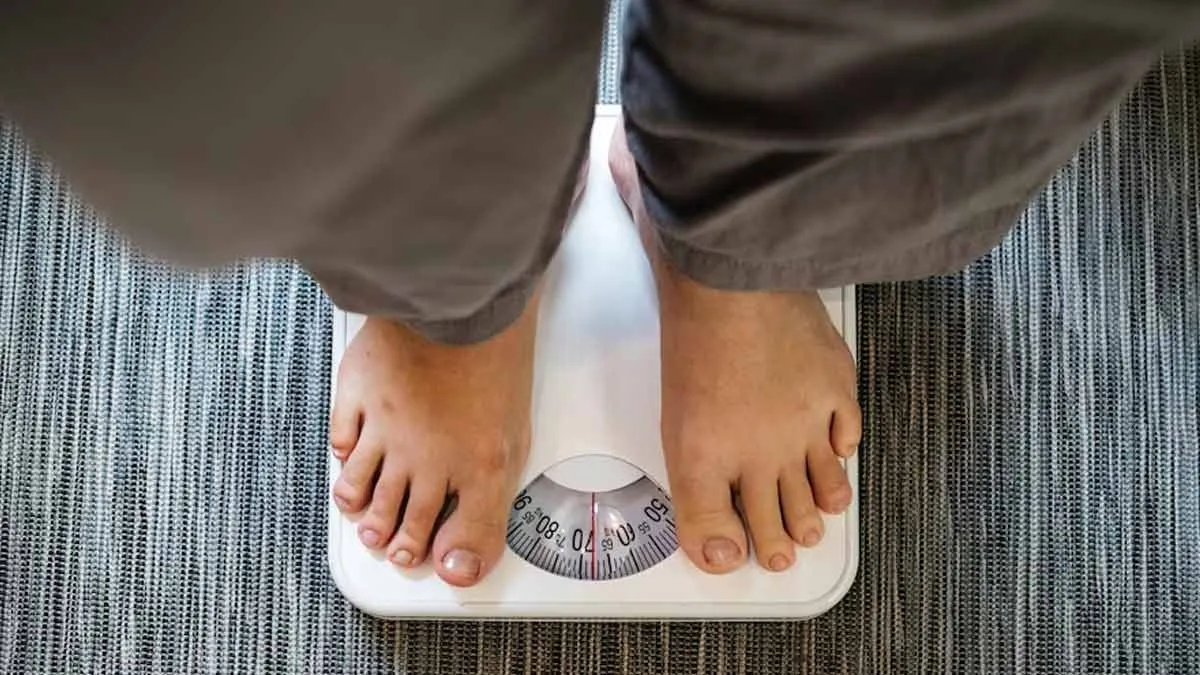
We've all been there. You step on the scale, and the number stares back, sometimes a welcome sight, other times a bit of a downer. But have you ever wondered if when you weigh yourself actually matters?
Table of Content:-
We spoke to our expert, Dr. Bhumesh Tyagi, Consultant General Physician at Shardacare - Health City - Noida, to help us decode this common question. Here s what he shared with us!
Why Timing Can Trick You
Dr. Tyagi explains that our weight isn't a fixed number that stays the same all day long. It can fluctuate quite a bit due to several factors, including:
- Food and Drinks: After a meal or a big glass of water, your weight will naturally be higher.
- Bathroom Breaks: Conversely, after using the restroom, you might see a slight dip.
- Exercise: Sweating during a workout can lead to temporary weight loss due to water loss.
- Hormonal Shifts: Especially in women, hormonal changes during their menstrual cycle can cause water retention and weight fluctuations.
Because of these natural ups and downs, weighing yourself at different times of the day can give you very different readings, which can be confusing or even discouraging.

Also Read: What Is Genetic Stress? How To Know If You Suffer It? Know From An Expert
The Expert's Verdict: The Ideal Time to Step On
So, what's the best time to get a more consistent and reliable weight reading? Dr. Tyagi suggests aiming for first thing in the morning, after you've used the bathroom but before you've eaten or had anything to drink.
Here's why this timing is considered ideal:
- Consistency: Weighing yourself at the same time each day minimizes the impact of food, drinks, and daily activities.
- Baseline: Your body has had all night to process food and fluids, giving you a closer picture of your baseline weight.
Other Important Tips for Accurate Weighing
Dr. Tyagi also emphasizes that consistency in your weighing routine goes beyond just the time of day. Here are a few other helpful tips:
- Use the Same Scale: Different scales can sometimes give slightly different readings. Stick to one reliable scale.
- Place Your Scale on a Hard, Flat Surface: Carpets or uneven floors can affect the accuracy of the reading.
- Wear Minimal Clothing: Heavy clothes can add unnecessary weight. Aim for weighing yourself in your underwear or light pajamas.
- Don't Obsess Over Daily Fluctuations: Remember that small daily changes are normal. Focus on the overall trend over weeks and months rather than getting caught up in day-to-day variations.

Bottomline
Ultimately, Dr. Tyagi stresses that while there is an "ideal" time to weigh yourself for consistency, the most important thing is to find a routine that works for you and stick to it. Weighing yourself at the same time, under similar conditions, will give you the most accurate picture of your weight trends over time. This information can be a valuable tool for tracking your health and wellness journey.
Also watch this video
How we keep this article up to date:
We work with experts and keep a close eye on the latest in health and wellness. Whenever there is a new research or helpful information, we update our articles with accurate and useful advice.
Current Version